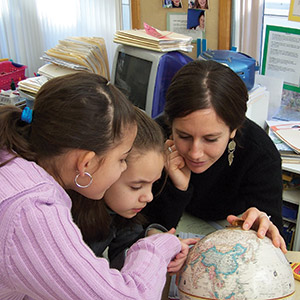Sandanona conference, capstones highlight SIT learning experience
May 2nd, 2018 | SIT Graduate Institute

The week of May 7 is busy at SIT Graduate Institute‘s Vermont campus, offering two great opportunities to learn about the social justice and experience-based learning that informs all of SIT’s programs. All the week’s events are open to the public.
The 2018 Sandanona Conference begins Monday, May 7, and continues through May 9. It’s an academic conference organized by the second-year students of SIT’s master’s program in TESOL (Teaching English to Speakers of Other Languages). The central focus is language teaching, though student presentations go beyond the more technical concerns of language teachers, from refugee education to the use of Tibetan Buddhist debate style in classrooms and a cross-cultural view of compliments.
TESOL students handle every aspect of the conference, from scheduling to delivering the presentations, according to TESOL program co-chair Leslie Turpin. “It’s a professional development experience,” Turpin said. “Students leave the TESOL program feeling confident that not only can they present their work, they can be part of organizing a professional conference.”
Each day of the Sandanona Conference begins at 8:30 a.m. with a keynote address. A full schedule of the conference can be found here.
May 7-10, students from SIT’s other current graduate programs – Sustainable Development; Peacebuilding and Conflict Transformation; International Education; and Intercultural Service, Leadership and Management – present the research projects they’ve undertaken, the final step in their degree programs. Students offer their capstone presentations, participate in discussions, and respond to other students’ capstones over several packed days.
“After two semesters of coursework, our students go far and wide during the practicum phase of their degrees. They return with new knowledge, work experience, and research,” said SIT Graduate Dean Ken Williams. “The capstone is the culmination of all they’ve learned from faculty, their fellow students, and experience.”
Capstone subjects this year include domestic concerns like police violence in Louisiana and diversity on campus, as well as global concerns like sustainability practices in Denmark and freedom of the press in Azerbaijan. A complete schedule and listing of capstone subjects can be found here.
